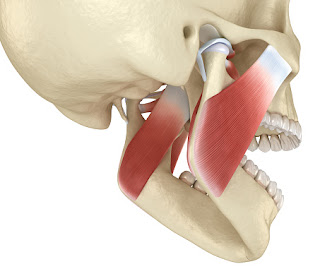The Natural And Effective Remedies For TMJ Disorder
Temporomandibular joint disorders, more commonly known as TMJ, are usually the result of inflamed and painful chewing muscles around your jaw. For some, it’s a once-in-a-while issue that can come from too much chewing, like indulging in a piece of gum all afternoon. For others, however, TMJ disorder can be a chronic issue that results in constant pain and discomfort. For most people, pain in the area of the jaw joint or muscles does not signal a serious problem. Below are the natural remedies for TMJ disorders.
The causes of TMJ disorder is relatively subjective, but may be linked to stress fractures, an imperfect bite, tooth grinding or tooth clenching related to stress. Luckily, a TMJ massage can act as an effective, non-medicinal way to relieve chronic TMJ pain. Here are some tips that can help you address the underlying issues no matter what the cause.
Strengthening exercises are best to perform between TMJ flare-ups. During times of intense pain, they can make the pain worse.
Here are the strengthening exercises:
Place a thumb under your chin and push your chin downward against it. Continue opening the mouth against moderate force from your thumb, and then hold it open for 5-10 seconds.
Open your mouth as wide as you comfortably can. Put your index finger between your chin and lower lip. Push inward while closing your mouth against the resistance.
TMJ pain is often the product of tension-producing stress. Simple relaxation exercises can help.
Here are the relaxation exercises:
Slowly inhale, allowing your stomach rather than your chest to expand. Exhale slowly while making your exhalation last about as long as your inhalation. Repeat 5-10 times.
While sitting or lying in a comfortably supported position, tense and release tension from each muscle in your body. Begin with the feet and work upwards to the head.
If TMJ pain is caused by teeth grinding or clenching, a nighttime bite guard can help. Although these are available over the counter, a fitted one designed by a dentist offers greater protection and more durability.
Other strategies that can reduce TMJ pain include:
Applying an ice pack to the affected area for 20 minutes. Some people find that alternating heat and ice, 15 minutes on and 15 minutes off, offers even greater relief.
Using non-steroidal anti-inflammatory drugs (NSAIDs), such as ibuprofen, to offer temporary relief.
Massaging the neck and head muscles to control tension radiating from the TMJ.
Controlling stress and anxiety. Psychological distress can cause people to tense their muscles without thinking, making the pain worse. It may also cause teeth grinding.
Proper dental care can help prevent TMJ pain by maintaining tooth alignment. Cavities, broken or missing teeth, and gum inflammation may make the pain worse. People should brush and floss their teeth, and aim to see a dentist every 6 months unless recommended otherwise. People should always tell their dentist if they have TMJ pain. It is also important to chew using both sides of the mouth. Some people with TMJ pain avoid chewing on one side because of pain. Over time, this makes the pain worse.



Comments
Post a Comment